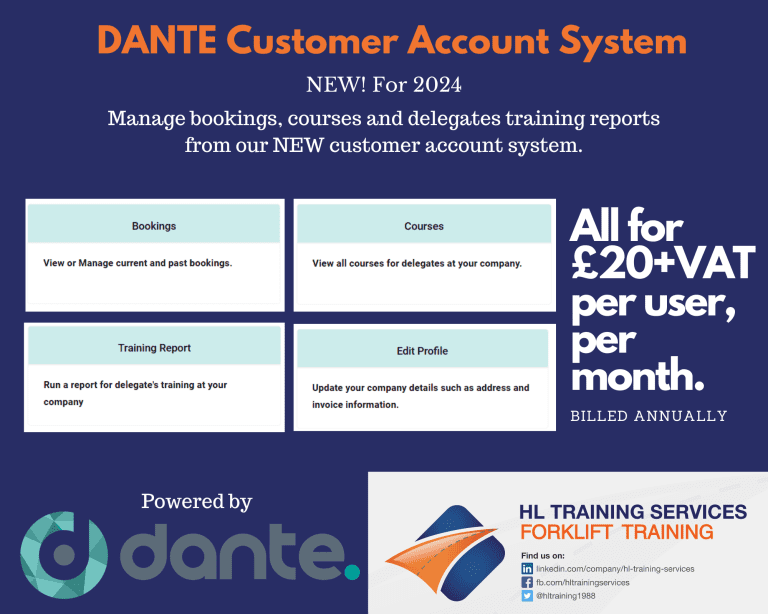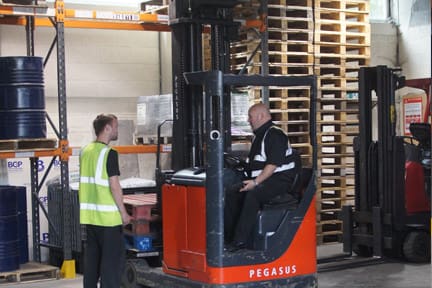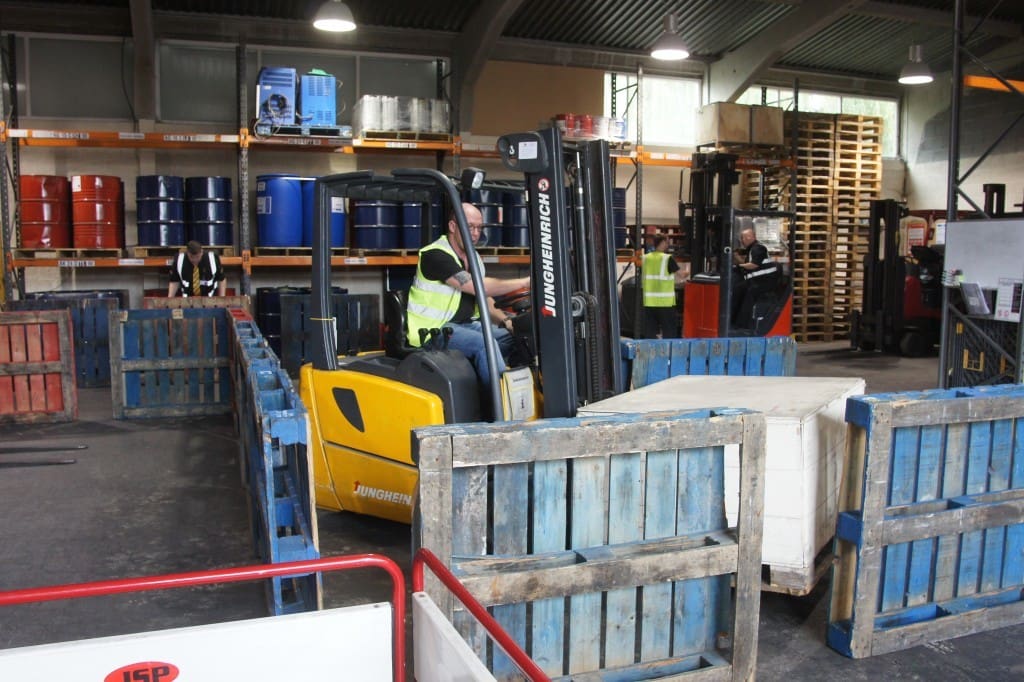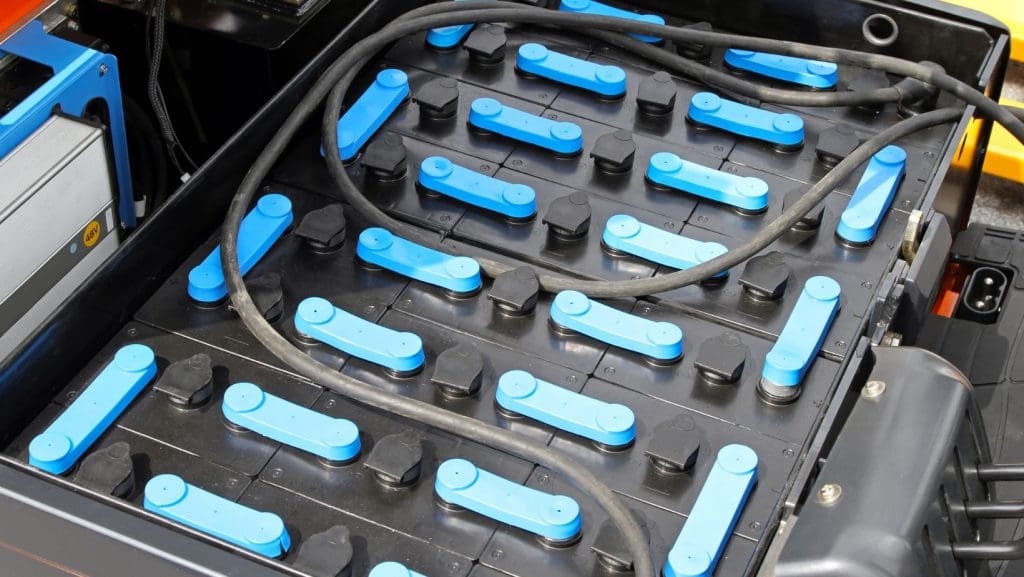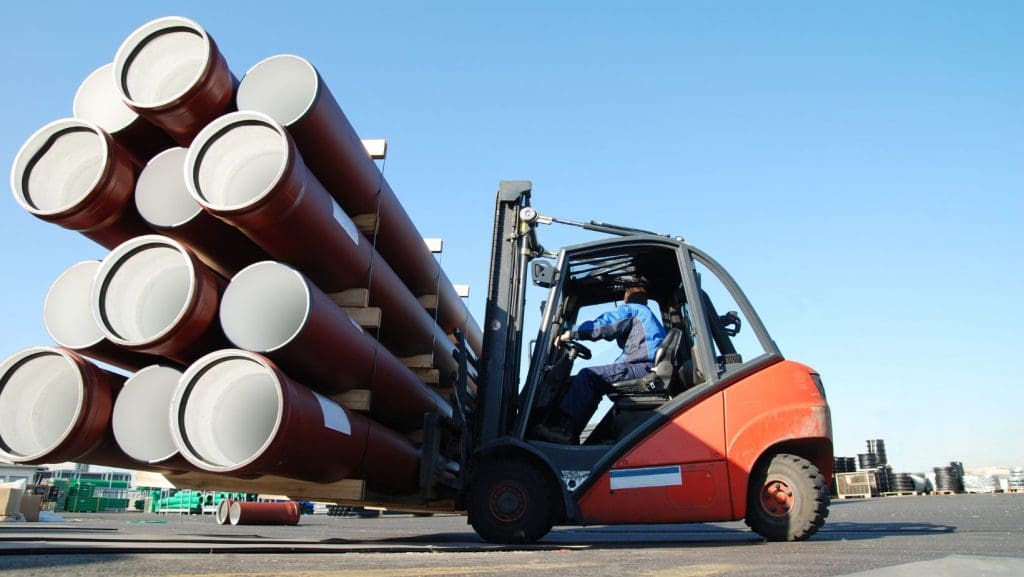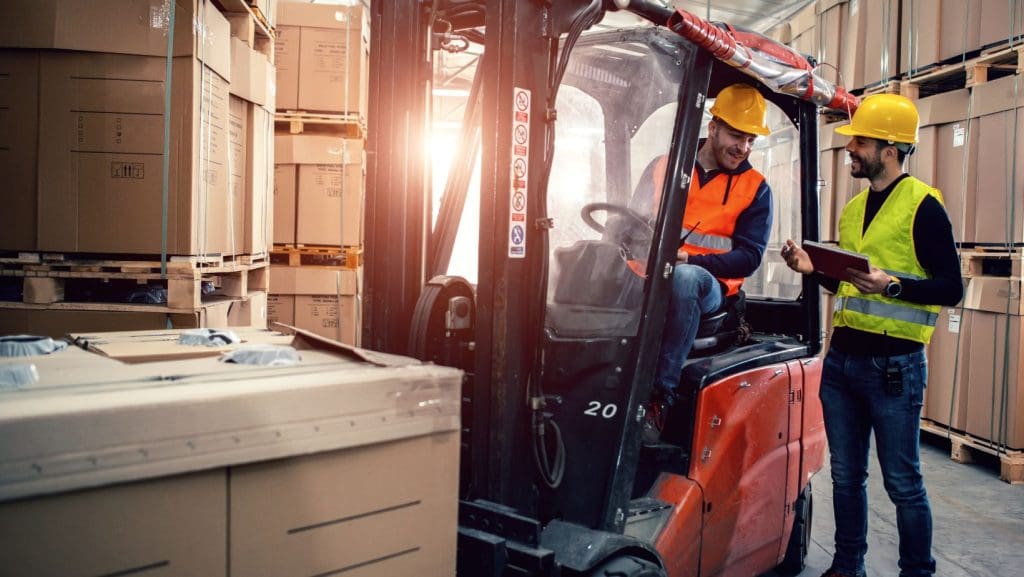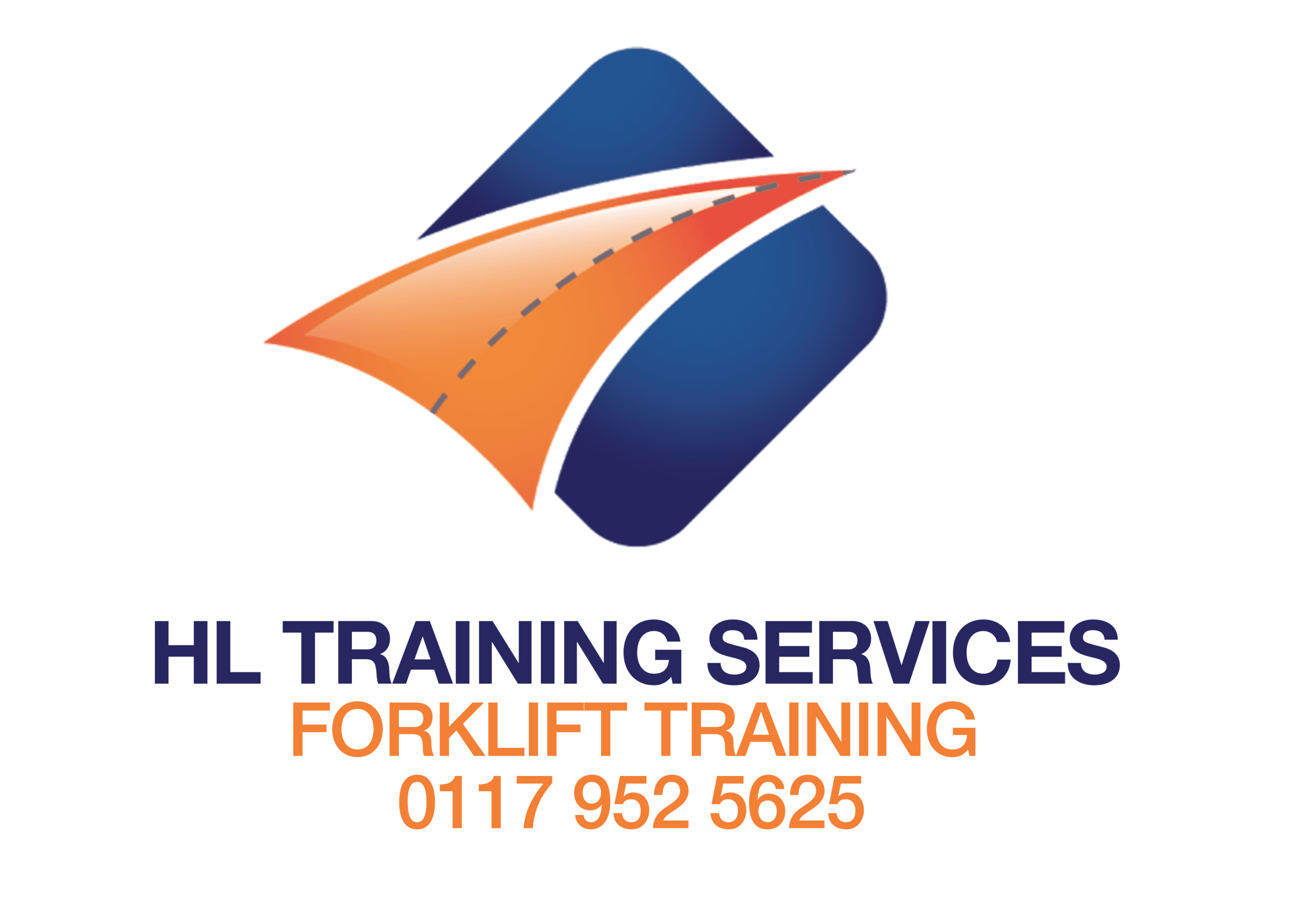
Primarily, forklifts operate within closed areas such as warehouses and factories. However, sometimes, a forklift may need to travel on a public road to transport goods to another site or to unload at a loading dock. It is legal for forklifts to operate on a public road, provided they adhere to legislative guidelines. Our comprehensive blog will guide you through the rules and regulations when driving your forklift on a public highway.
- Legal Requirements to Drive Your Forklift on a Public Road
- Distance Regulations
- How Do I Register My Forklift for Road Use?
- Forklift Training for Public Roads
Legal Requirements to Drive Your Forklift on a Public Road
Forklifts are road legal, granted specific requirements are followed:
- If you plan to operate your forklift on a public road, you must register the vehicle with the DVLA, ensuring it is taxed and insured. The Vehicle Excise and Registration Act (1994) declares that all motorised vehicles must be registered, taxed, insured, and have a valid licence plate to operate on public roads. If you are driving an electric-powered forklift, you must tax it under the electric vehicle tax.
- Drivers must be fully qualified to drive a forklift by completing a forklift operator training course and should possess a full UK driving licence. The minimum age to drive a forklift is 16, but there may be age restrictions depending on the weight of a forklift when fully loaded; a supervisor should check these regulations before assigning a driver to a forklift.
- To drive on a public road, operators must be sure that the road is fully lit and that the forklift has an amber beacon of light that flashes overhead when the vehicle’s speed does not exceed 25mph.
- For your forklift to conform to government legislation for public road use, you must have evidence of the age of the vehicle, vehicle type approval, and a valid test certificate. Failure to comply with government regulations will result in a fine.
Distance Regulations
Travelling Short Distances (Less than 1000 yards)
If you are travelling less than 1000 yards in your forklift in one go, your vehicle will be classed as a ‘work truck’; in this case, it is exempt from the Road Vehicles Regulations. However, your vehicle must still be insured and registered. For example, if you are using public roads to transport goods to another facility less than 1000 yards away, your vehicle will be classed as a ‘work truck.’ Even if your forklift travels less than 1000 yards, you must still have a full UK licence and accredited training.
Travelling Longer Distances (Over 1000 yards)
Forklifts that travel further than 1000 yards in one go will not be classed as a ‘work truck’ and will be required to comply with the Road Vehicle Regulations. The forklift will be taxed and licenced based on its weight. If the total weight of the vehicle exceeds 3500kg, then it will be classed as a HGV, anything less, and it will be classed as a light goods vehicle.
How Do I Register My Forklift for Road Use?
Your forklift needs to be registered with the DVLA. Request a V55/5 form online, fill it out and post it back along with your vehicle documentation. Depending on the type of forklift you have will determine what documentation you are required to submit. In this case, it may be beneficial to contact the DVLA and find out exactly what documentation you need so that the process is not held up. The standard information you need to provide includes:
- A copy of your driving licence
- A certificate of insurance
- A valid test certificate
- A NOVA Form
Forklifts on Public Roads FAQs
Can I drive a forklift without training?
Most employers will require forklift operators to hold a qualification for forklift training. This certification is required to ensure that operators know how to operate a forklift safely and effectively. There are many courses available that only take a few days to complete depending on the level of training you require.
Does a forklift need to be insured?
A forklift must be insured if it is being operated on public roads and in public spaces. Even when operating a forklift on private property, you should consider taking out some form of insurance due to the possibility of an accident.
Can a banned driver drive a forklift?
If you are banned from driving, you will not be able to drive a forklift on public roads. In order to register your forklift for road use, you need to provide a copy of your UK driving licence.
Forklift Training for Public Roads
HL Training can provide operators with a range of training courses that will allow them to drive a forklift not only on their business premises but also on public roads. Forklift training is essential for anyone operating a forklift. Whether you are a beginner or an experienced operator, our courses can provide you with the skills and knowledge you need to safely and efficiently drive a forklift on a public road. We are a trusted provider of forklift training. Our team will gladly help with any enquiries you may have about the level of training you will need, so do not hesitate to contact us today.

